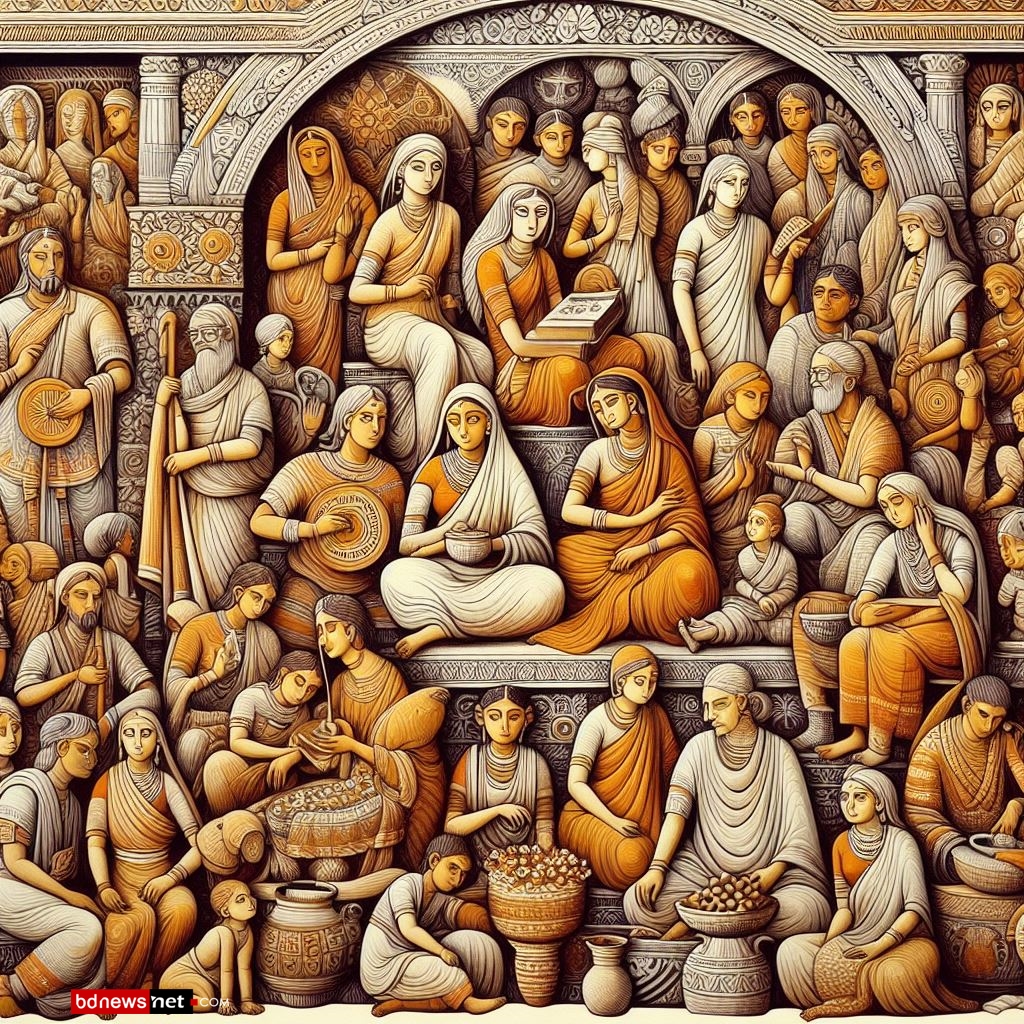wiki -Encyclopedia
Bengalis who are not Bangali anymore !

The term “Bengali,” or its British counterpart “Bangali,” is ascribed to individuals who speak the Bangla language and bear a heritage deeply rooted in the historical narrative of blood and conspiracy. This captivating tale traces its origins back to the era of Alexander the Great and unfolds against the backdrop of British machinations post the Second World War.
The narrative of blood is intricately woven into the fabric of Bengal’s history, reaching as far back as the times of Alexander the Great. The people who inhabit the Ganges delta, stretching from the foothills of the Himalayas to the Bay of Bengal, have witnessed centuries of conspiracies, deaths, and wars. Their story unfolds as a testament to the resilience of a nation that has weathered the storms of imperial powers, with its roots deeply embedded in the ancient landscapes of South Asia.
This nation, geographically centred on the Ganges delta, has been marked by divisions imposed by imperial forces throughout history. The repercussions of these divisions continue reverberating, as the people find themselves engaged in a perpetual struggle for survival. The narrative of Bengal extends beyond its geographical boundaries; it encapsulates the spirit of a people who have evolved through the annals of time, adapting to changing circumstances and rising above the challenges presented by external powers.
The saga of the Bangalis is not merely confined to the term “Bengali” as a linguistic or ethnic identifier. It encompasses a broader narrative, one that reflects the indomitable spirit of a people who, despite facing external pressures and divisions, have retained their identity. In the present day, the Bangalis find themselves at the crossroads of a complex historical tapestry, where their heritage is both a source of strength and a reminder of the challenges they have overcome.
The story of the Bangalis is a poignant testament to their journey from ancient times to the contemporary era, embodying a resilience that transcends linguistic and ethnic categorizations. In essence, the Bangalis are not merely Bengali anymore; they are the torchbearers of a profound and enduring narrative that resonates through the corridors of history